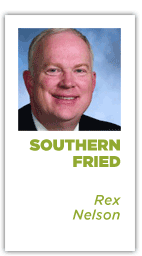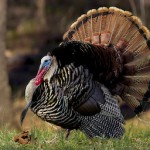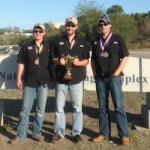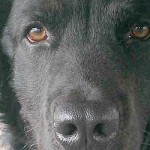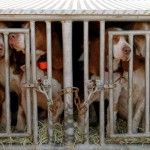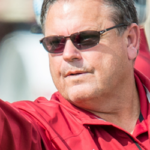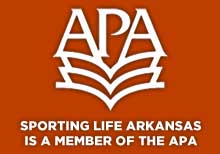The first day of dove season was always circled on the calendar at my house. My dad loved that opening-day dove hunt and planned for it throughout the summer.
The days on either side of Labor Day meant four things when I was growing up in southwest Arkansas – the start of school, the start of football season, the start of dove season and my birthday (which falls on Labor Day occasionally, including this year).
Though it’s almost always hot in early September in Arkansas, the start of dove season long has been a sign that autumn indeed will come.
“More than the reappearance of school buses on the roads, it’s the dove opener that signals summer’s passing in the Deep South, which is perhaps why dove shoots – big, communal events with dozens of hunters scattered throughout a field – have long been paired with celebrations, barbecues, grand revels,” Jonathan Miles wrote in Field & Stream. “In Northern climes, the hunting of mourning doves – which some consider songbirds – is a controversy-scarred topic. … In the South, however, dove hunting is a venerable tradition, older than bourbon and as beloved as college football. Dove hunting offers challenging pass-shooting, it’s true, but here it’s about much more than that: kids, wives, dogs, camaraderie, post-hunt cocktails, grilled dove breasts and pork barbecue, old customs and the changing of the seasons.”
Writing at www.gundogsonline.com, R. Michael DiLullo described it this way: “The dove fields of the South are special places, where the stories and the learning process are as important as the hunting itself. For many Southern youngsters, the dove field will be their formal introduction into hunting and the shooting sports. It is also the beginning of their kinship with the outdoors, the reverence of nature that lives in all true outdoorsmen. These lessons will be the foundations of lifelong ethics, values and traditions. The handing down of vast knowledge passed on from fathers’ fathers is ensured and will continue into the next generation.
“The dove fields of the South also bring together a rich diversity of cultures and social status. Men (and increasingly more women) of all walks of life gather each September to renew their bonds with nature and test their skills against the aerobatic doves. Their shotguns are as diverse as the sportsmen themselves for nowhere in the shooting sports will you see such a varied selection of scatter guns used for downing a game bird. Fine English doubles, vintage American classics by such legendary gun makers as Parker, Smith, Fox, Browning and Winchester are stationed next to modern auto-loaders and pump guns.”
Often on that first day of dove season, the hunters are sweating before sunrise and swatting mosquitoes constantly. But no one complains. Instead, there’s laughter on all sides of the field. For most of those who hunt these little birds, it’s about so much more than killing doves. It’s about the friendships and the tall tales. It’s about getting outside on an early September morning and watching the sun come up. It’s about saying so long to summer. And it’s about brunch. The older the hunters get, the more it becomes about brunch, in fact.
“In the South, dove hunts do not draw quietly to a close,” Miles wrote. “Sometimes, at the simplest end, a grill and cooler are hauled to the end of the field, and the doves’ breasts are grilled – usually swaddled in bacon, maybe with a jalapeno tucked inside – as the hunters tell and retell stories of the day’s shooting. Other post-hunt celebrations, especially in the Mississippi Delta, veer toward the baroque, with candelabra on the tables and servants buzzing around.
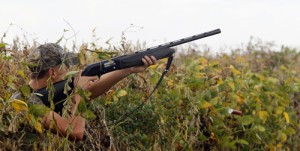 Those who don’t help with the cooking get to clean the doves. I’m a terrible shot, but my dad did teach me how to pop a dove breast out with one flick of the wrist. Brunch might consist of pork chops, bacon, sausage, ham, scrambled eggs, fried eggs, grits and fried potatoes. At some hunts, as Miles wrote, they grill the dove breasts on the spot. When my birthday would fall after the first day of dove season as a boy, I would request fried dove breasts, biscuits, rice, gravy and chocolate cake for my birthday dinner.
Those who don’t help with the cooking get to clean the doves. I’m a terrible shot, but my dad did teach me how to pop a dove breast out with one flick of the wrist. Brunch might consist of pork chops, bacon, sausage, ham, scrambled eggs, fried eggs, grits and fried potatoes. At some hunts, as Miles wrote, they grill the dove breasts on the spot. When my birthday would fall after the first day of dove season as a boy, I would request fried dove breasts, biscuits, rice, gravy and chocolate cake for my birthday dinner.
If the season opened on the Saturday morning of Labor Day weekend, we would be out in the fields on that Saturday morning in addition to Saturday afternoon, Sunday afternoon (Sunday morning was reserved for the First Baptist Church of Arkadelphia), Monday morning and Monday afternoon. My father was the best wingshot I’ve ever known. He had been raised in a poor family in Benton during the Great Depression. Being able to shoot well at rabbits and squirrels often had meant the difference between a supper with meat on the table and one with only biscuits and gravy.
I thought about dove hunting as I was sitting at the Little Rock Touchdown Club’s meeting on Monday. The luncheon featured a cast of former Dallas Cowboys who showed up to announce the Cliff Harris Award for the nation’s top small college defensive player. Long before he was a star for the Ouachita Baptist University Tigers and the Dallas Cowboys, Cliff and younger brother Tommy (who went on to play football at the University of Arkansas) spent their Labor Days hunting with their father and my father. Our dads played football together at Ouachita in the 1940s and became lifelong friends.
Dad loved to tell the story of the year he joined O.J. “Buddy” Harris, Cliff, Tommy and several others on a hunt during which more than 100 doves were harvested.
My dad gave the doves to a friend named Henry, who had told him he loved eating any kind of wild game. He also loved to have a strong drink or two each evening.
About a week later, my father went into Henry’s store and asked, “How were those doves?”
“Red, I don’t want you to ever give me another dove,” Henry answered. “I got so sick that I couldn’t get out of bed for several days. Either I had some bad doves or some bad whiskey. I would like to think it was the doves.”
Those are the kinds of stories that are repeated at opening-day dove hunts year after year.
“The little Confederate gray mourning dove does more to kick off the fall hunting social season for us good old boys than a new shotgun, pit-cooked barbecue, hushpuppies and a longneck Budweiser could,” Tom Bryant wrote in The Pilot in North Carolina. “Dove hunting season has become a major event in the South. I should rephrase that to say the opening few days of the season usher in the real stuff, and then everyone settles into their specialty. Quail hunters concentrate on where the coveys are. Deer hunters start putting up their tree stands, scouting for rubs and limbering up the bows or sighting in black-powder guns. Duck hunters begin cleaning up decoys and getting duck boats ready in preparation for the main event. … But all of that comes later.
“First of all, we’ve got to go dove hunting. Dove hunts take place in different ways, from the fine-linen, top-of-the-line, sophisticated event to the out-behind-the-barn, down-close-to-the-creek, next-to-the-freshly-cut-cornfield hunts that were my early introduction to the art of dove shooting. No two opening days are the same. And yet, if you’ve been to one, you’ve almost been to them all. … Like untold thousands of dove hunters across the South, we will join the noble pursuit of an amazing little Southern bird that means so much to us.”
According to the calendar, autumn doesn’t officially arrive until late September.
It will still be hot next week. It will still be humid.
But when the sun begins to rise in the eastern sky and that first hunter stands up from his stool and fires Sunday morning, it will be autumn in Arkansas in my mind.


